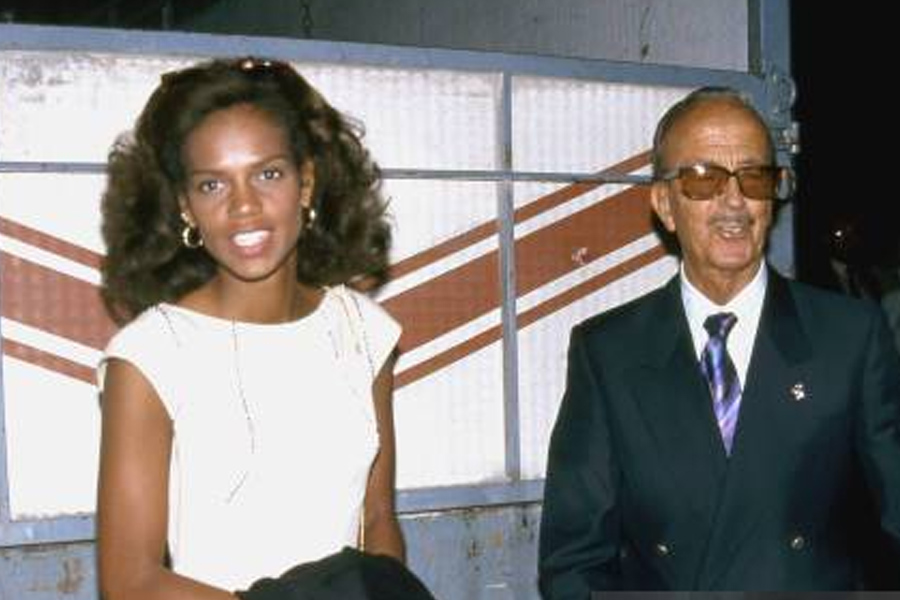Basic Information
| Item | Details |
|---|---|
| Full Name | Julio José Iglesias Puga |
| Known As | “Papuchi” |
| Born | 25 July 1915 |
| Died | 19 December 2005 |
| Nationality | Spanish |
| Profession | Gynecologist and obstetrician |
| Notable Roles | Founder of a leading maternity clinic in Madrid; head of sterility/infertility and family-planning unit |
| Major Public Event | Kidnapped by ETA, December 1981–January 1982; rescued |
| Spouses | María del Rosario de la Cueva y Perignat (m. 1943; div. 1983); Ronna (civil marriage reported 2001) |
| Children | Julio (the singer; b. 1943), Carlos (b. mid-1940s), Jaime (b. 18 May 2004), Ruth (b. 26 July 2006, posthumous) |
| Memoir | Voluntad de hierro (authorized biography/memoir) |
| Family Claim to Fame | Father of singer Julio Iglesias; grandfather of Enrique Iglesias and the broader Iglesias clan |
A Doctor Before the Flashbulbs
Before he was “Papuchi” in gossip columns, Julio Iglesias Puga was a modernizer in Spanish obstetrics. He helped found a major Madrid maternity clinic and rose to lead its sterility/infertility and family-planning unit, an area then undergoing rapid change. He advocated techniques that made childbirth safer and less traumatic, pushing for practices that read like a quiet revolution in white coats.
Patient charts, not cameras, first defined his life. Yet his medical leadership had a public dimension: he guided couples through fertility challenges long before such conversations were commonplace. In a Spain finding its post-dictatorship footing, he represented a forward-leaning medical generation—practical, methodical, and persuasive.
The Seismic Shock: Kidnapping and Rescue, 1981–1982
On 29 December 1981, Iglesias Puga was kidnapped by ETA in Barcelona, an audacious crime that jolted Spain and the global press. He was held into January 1982 and freed in a rescue operation that became a national story. The incident reshaped his orbit and that of his family. It propelled him from respected doctor to public figure, the family surname already echoing through concert halls now welded to a story of resilience and risk.
The kidnapping had ripple effects: security protocols, family decisions, and a father-son relationship under the glare of attention. In Spain’s collective memory, his liberation carried the catharsis of a film’s final act—only it was very real.
Media Figure and Memoirist
In later years, “Papuchi” became a familiar media personality—smiling in photos, dispensing quips with an avuncular tilt, and embracing the curiosity around the Iglesias family. He leaned into the public’s fascination while never fully relinquishing his identity as a doctor. His authorized memoir, Voluntad de hierro, framed his life as a study in willpower: medicine as vocation, family as saga, adversity as catalyst.
This dual identity—clinician and celebrity father—gave him a rare voice in Spanish culture. He could talk clinics and crib sheets, fertility and family fate, with equal fluency.
Late-Life Love and the Second Family
In the 1990s, Iglesias Puga began a relationship with Ronna (often styled Ronna Keith/Keitt), culminating in a civil marriage reported in 2001. The union brought late-life joy and a new chapter to the Iglesias lineage. On 18 May 2004, at the reported age of 88, he became a father again with the birth of Jaime. After his passing in December 2005, his daughter Ruth was born on 26 July 2006—an indelible note in the family chronicle, a posthumous presence that kept his story open-ended.
The image of a nonagenarian physician cradling a newborn cut a memorable figure in Spanish public life: life renewing itself in defiance of time’s arithmetic.
The First Marriage and the Famous Son
He married María del Rosario de la Cueva y Perignat in 1943. Their first son, Julio (born 1943), would become one of the best-selling recording artists in history. A second son, Carlos, followed. The early family years were defined by study and work, routine and aspiration. Only later did the Iglesias name grow into an international marquee—so bright it inevitably cast “Papuchi” in its glow.
The father’s medical precision and the son’s musical phrasing are often portrayed as opposite arts, yet both require discipline, courage, and the ability to perform under pressure. Perhaps that was the family trait.
The Clan, at a Glance
| Name | Relation to Julio Iglesias Puga | Born–Died | Notes |
|---|---|---|---|
| María del Rosario de la Cueva y Perignat | First wife | — | Married 1943; divorced 1983 |
| Ronna (Keith/Keitt) | Second spouse | — | Relationship in 1990s; civil marriage reported 2001 |
| Julio Iglesias (the singer) | Son | 1943– | Global entertainer; central public link to “Papuchi” |
| Carlos Iglesias (de la Cueva) | Son | mid-1940s– | Appears in family records and press |
| Jaime Iglesias | Son with Ronna | 18 May 2004– | Noted as late-life child |
| Ruth Iglesias | Daughter with Ronna | 26 July 2006– | Posthumous daughter |
| Manuela Puga Noguerol | Mother | 1888–1965 | Galician ancestry |
| Ulpiano Iglesias Sarria | Father | — | Galician ancestry |
| Siblings (selected) | Brother/sister | — | José, Manuel, Flora, María del Carmen listed in genealogical records |
| Grandchildren (selected via Julio the singer) | Grandchildren | 1971–2007 | Chábeli (1971), Julio Jr. (1973), Enrique (1975), Miguel Alejandro (1997), Rodrigo (1999), Cristina & Victoria (2001), Guillermo (2007) |
Legacy in Numbers and Milestones
- 1915: Birth in Spain, with deep Galician roots that thread through many family histories.
- 1943: Marriage; the same year marked by the birth of his first son, Julio.
- 1960s–1970s: Rise to prominence in obstetrics and gynecology; leadership in infertility and family-planning work at a leading Madrid clinic.
- 29 December 1981: Kidnapped by ETA; released in January 1982 in a dramatic rescue.
- 1990s–2000s: Emerges as a media personality while remaining a medical reference; publishes memoir.
- 18 May 2004: Becomes a father again with the birth of Jaime.
- 19 December 2005: Dies at age 90.
- 26 July 2006: Daughter Ruth is born posthumously.
Each date feels like a notch on a violin’s neck: the life’s tune sliding from science to spectacle and back again.
Family Lines and Public Lives
For many, the Iglesias name means music first. Yet the family’s gravity runs through “Papuchi,” whose medical work predates the stage lights. The grandchildren—Chábeli, Julio Jr., Enrique, and the younger generation born from the singer’s later marriage—expanded the clan into a globe-spanning surname. Public fascination grew not merely from fame but from the improbable arcs: a doctor embroiled in national drama; a father who became a late-life dad; a family that managed to be both private and omnipresent.
The elder Iglesias embodied continuity. He bridged a Spain of scarcity and a Spain of spectacle, bringing clinical rigor to bear on intimate human hopes while living through moments that tested national nerves.
Recent Echoes and Ongoing Interest
Decades after his medical peak and years after his death, his name resurfaces with regularity. Anniversaries of the 1981–82 kidnapping prompt retrospectives; family milestones rekindle curiosity. Media pieces revisit his role as patriarch and public personality. Reports of renewed public appearances by his widow, Ronna, have re-lit conversations about his late-life fatherhood and the tenderness of his final years.
The archive photographs—doctor’s coat here, tuxedoed red-carpet backdrop there—say as much as any headline. They show a man comfortable in two worlds, a clinician who understood the human heart in both medical and metaphorical senses.
FAQ
Why was Julio Iglesias Puga called “Papuchi”?
It was a term of endearment used in Spain that became his widely recognized nickname in the media and within the family’s public narrative.
What made him notable beyond being Julio Iglesias’s father?
He was a prominent gynecologist, a founder of a major maternity clinic in Madrid, and a leader in infertility and family-planning services.
When did the kidnapping occur?
He was kidnapped on 29 December 1981 and freed in January 1982 in a widely reported rescue.
How many children did he have?
He had four: Julio and Carlos from his first marriage, and Jaime and Ruth from his later marriage to Ronna.
Did he become a father late in life?
Yes, his son Jaime was born in 2004 when he was reported to be 88, and his daughter Ruth was born posthumously in 2006.
What is known about his finances?
Public, reliable estimates of his personal net worth are not available; most wealth reporting centers on his son, the singer.
Did he publish any books?
Yes, he released an authorized memoir titled Voluntad de hierro, reflecting on his life and career.
How is he connected to Enrique Iglesias?
He is Enrique Iglesias’s grandfather through his son Julio (the singer).



